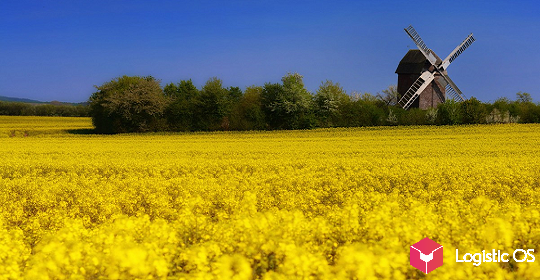According to the latest data, the volume of Russian wheat exports in August was a record.
The volume of Russian wheat exports in August was higher than forecast.
While analysts predicted it at about 5.2 million tons, the actual export level was about 5.6 million tons.
Moreover, this happened despite several restraining factors at once.
The first of them is quite serious competition from European wheat, which is now also starting to enter the world market.
The second factor is the restraint of exports by the Russian authorities to stabilize the domestic market of the Russian Federation.
Finally, the third factor is the ban on the import of Russian wheat to Kazakhstan, which limits the possibility of both selling it to Kazakhstani enterprises and transiting it through this country to other countries.
Overall, over the past 2 months, Russia has exported 9.6 million tons of wheat, which is slightly less than the figure for the same period last year — 9.4 million tons.
It is planned that the current September will be, if not a record, then at least a very high month in terms of shipments of Russian wheat abroad.
Most likely, the volume of deliveries will be about 5.3 million tons. Although this is less than last year’s figure of 5.5 million tons, it can still be considered a very decent level.
Which countries are buying Russian wheat today?
Currently, Egypt is the largest importer. It is followed by Bangladesh and Turkey, Algeria, Israel and Vietnam.
Each of these countries, in addition to Vietnam, has purchased from 0.5 million to 1.4 million tons of wheat from Russia over the past month.
As for Vietnam, about 250 thousand tons of wheat have been sent there over the past 2 months, which is more than for the entire previous season.
For this reason, it can be said that deliveries to Vietnam certainly have great potential.
As for the prices of Russian wheat, they have grown by about 450 rubles per ton over the past week and currently amount to about 16.3 thousand rubles per ton.
The prices were at about the same level in September last year, experts note.
At the same time, in some regions the supply on the domestic market is low, since there are problems with harvesting.
For example, such a region is Siberia. There are prolonged rains there, which can negatively affect the quality and quantity of the harvest.
First of all, this concerns the Altai, Novosibirsk, Kemerovo and Krasnoyarsk regions, where in some places even a state of emergency has been declared.

